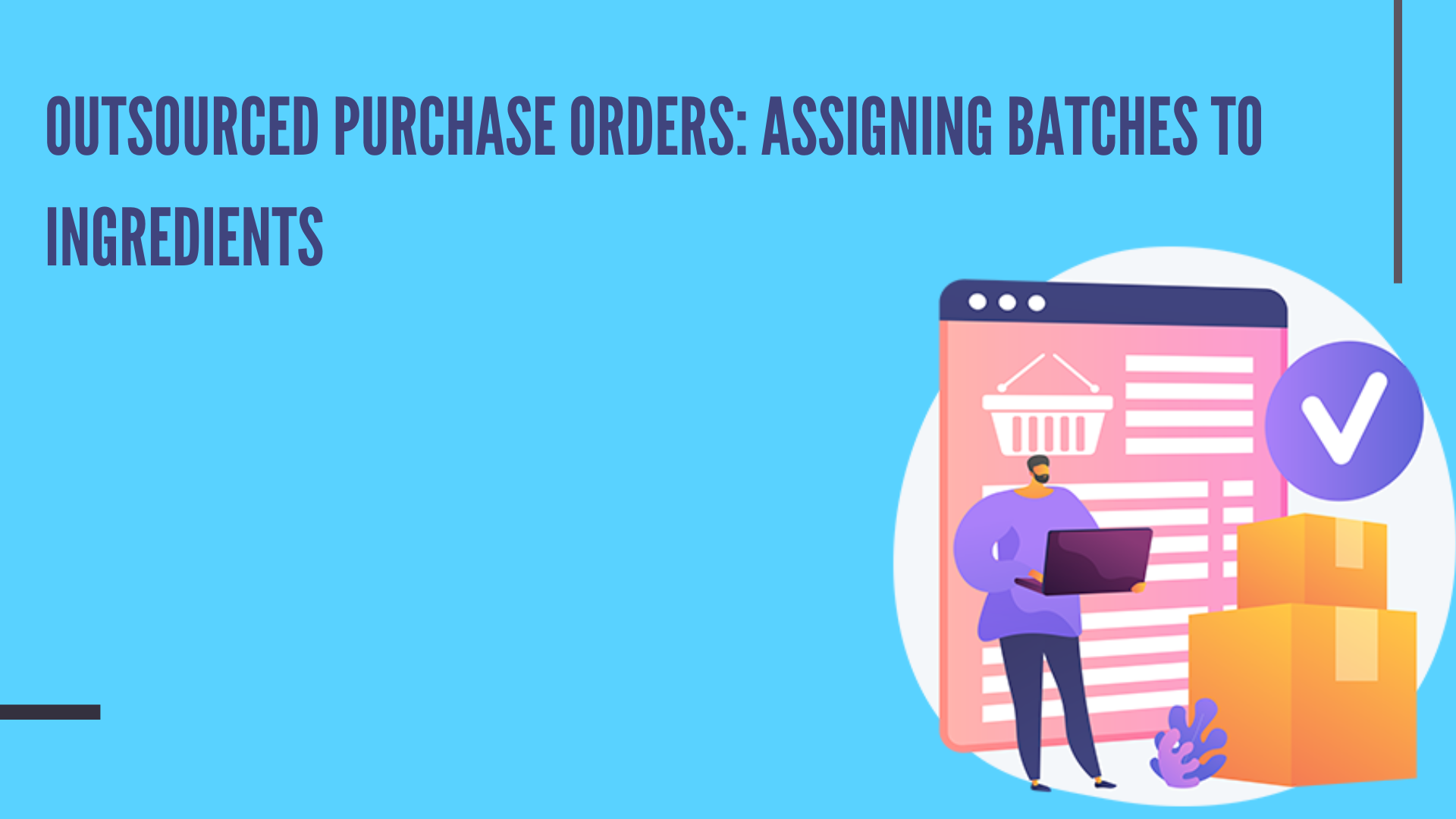One of the pivotal aspects of supply chain management is the efficient handling of purchase orders, especially when these orders are outsourced. Assigning batches to ingredients through outsourced purchase orders can significantly enhance traceability, ensure quality control, and streamline inventory management. This blog explores the strategies and benefits of implementing an effective batch assignment system for ingredients in outsourced purchase orders.
The Importance of Batch Assignment in Supply Chain Management
1. Enhanced Traceability
Batch assignment allows for precise tracking of ingredients from suppliers to end products. This traceability is crucial in the event of a recall, enabling companies to quickly identify and isolate affected batches, thereby minimizing the impact on consumers and maintaining brand integrity.
2. Quality Control
By assigning specific batches to ingredients, manufacturers can monitor the quality of each batch individually. This level of oversight ensures that only ingredients meeting stringent quality standards are used in production, thereby maintaining consistent product quality.
3. Inventory Management
Efficient batch assignment aids in better inventory control. It helps in monitoring stock levels, understanding usage patterns, and managing reorders effectively. This minimizes the risk of stockouts or overstocking, leading to cost savings and improved operational efficiency.
Strategies for Assigning Batches to Ingredients in Outsourced Purchase Orders
1. Implementing a Batch Numbering System
A robust batch numbering system is the foundation of effective batch management. This system should be standardized across all suppliers to ensure consistency. Batch numbers typically include information such as the production date, supplier code, and ingredient type, allowing for easy identification and tracking.
2. Leveraging Technology for Batch Tracking
Investing in technology solutions like Enterprise Resource Planning (ERP) systems can streamline the process of batch assignment and tracking. These systems can automatically generate batch numbers, update inventory records, and provide real-time data on batch usage and location.
3. Supplier Collaboration and Integration
Close collaboration with suppliers is essential for seamless batch assignment. Integrating suppliers into your batch tracking system ensures that batch numbers are assigned correctly at the point of origin. Regular communication and data sharing with suppliers can enhance accuracy and reliability.
4. Standard Operating Procedures (SOPs)
Developing and adhering to SOPs for batch assignment is crucial. These procedures should detail the steps for assigning, recording, and tracking batch numbers, ensuring consistency and compliance across the organization.
5. Regular Audits and Reviews
Conducting regular audits of the batch assignment process helps in identifying discrepancies and areas for improvement. Reviewing these processes periodically ensures that they remain effective and aligned with industry best practices.
Benefits of Outsourcing Purchase Orders with Batch Assignment
1. Cost Efficiency
Outsourcing purchase orders can lead to significant cost savings by leveraging the economies of scale of suppliers. When combined with effective batch assignment, these savings are further enhanced by reducing waste and improving inventory management.
2. Focus on Core Competencies
Outsourcing non-core activities like purchase order management allows companies to focus on their core competencies. This strategic focus can drive innovation, improve product quality, and enhance customer satisfaction.
3. Access to Expertise
Outsourcing partners often bring specialized knowledge and expertise to the table. This expertise can enhance the batch assignment process, ensuring it is done accurately and efficiently.
4. Scalability
Outsourced purchase order management provides the flexibility to scale operations up or down based on demand. This scalability is particularly beneficial for businesses with seasonal variations or fluctuating demand patterns.
Case Study: Successful Implementation of Batch Assignment in Outsourced Purchase Orders
Consider a mid-sized food manufacturing company that decided to outsource its purchase order management to streamline operations. By implementing a batch numbering system and integrating it with their supplier’s systems, they achieved remarkable improvements in traceability and quality control.
Steps Taken:
- Batch Numbering System: Established a standardized batch numbering system.
- ERP Integration: Integrated the ERP system with suppliers for real-time batch tracking.
- Supplier Collaboration: Regularly communicated with suppliers to ensure accurate batch assignment.
- SOP Development: Created SOPs for batch assignment processes.
- Regular Audits: Conducted periodic audits to maintain process integrity.
Results:
- Improved Traceability: The company was able to trace ingredients accurately from suppliers to finished products.
- Enhanced Quality Control: Consistent quality checks were maintained, ensuring high product standards.
- Efficient Inventory Management: Optimized inventory levels, reducing waste and storage costs.
- Cost Savings: Significant cost reductions were achieved through efficient outsourcing and inventory management.
Conclusion
Assigning batches to ingredients in outsourced purchase orders is a strategic approach that can significantly enhance supply chain efficiency, quality control, and traceability. By implementing a robust batch numbering system, leveraging technology, fostering supplier collaboration, adhering to SOPs, and conducting regular audits, manufacturers can achieve remarkable improvements in their operations. The benefits of outsourcing, combined with effective batch assignment, provide a powerful formula for success in today’s competitive manufacturing landscape.









